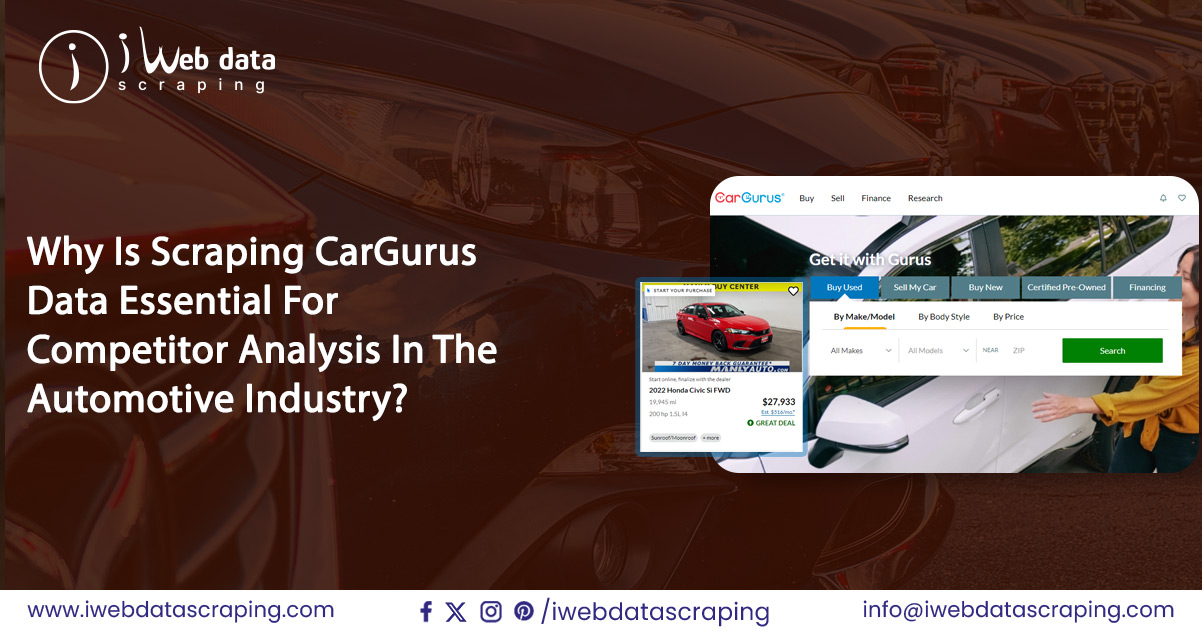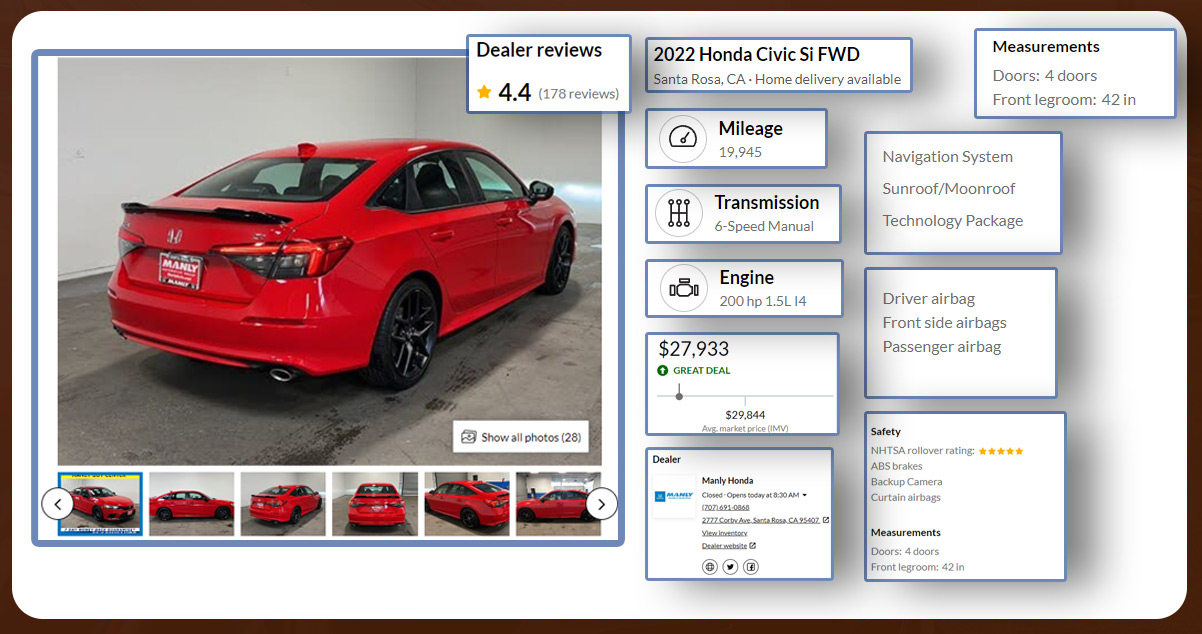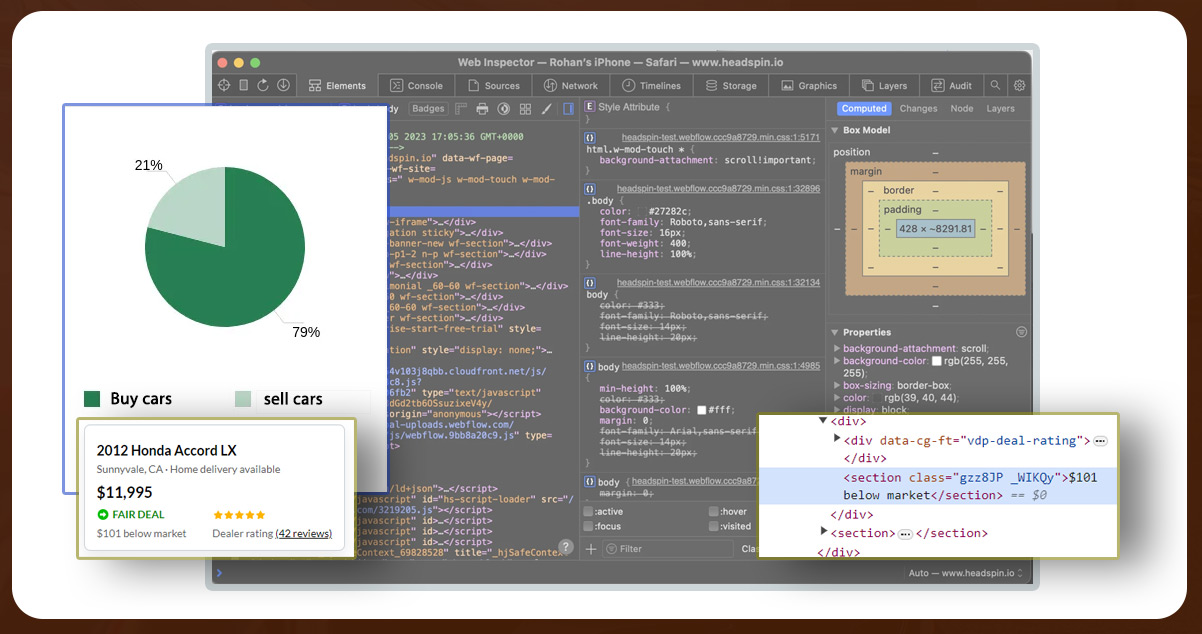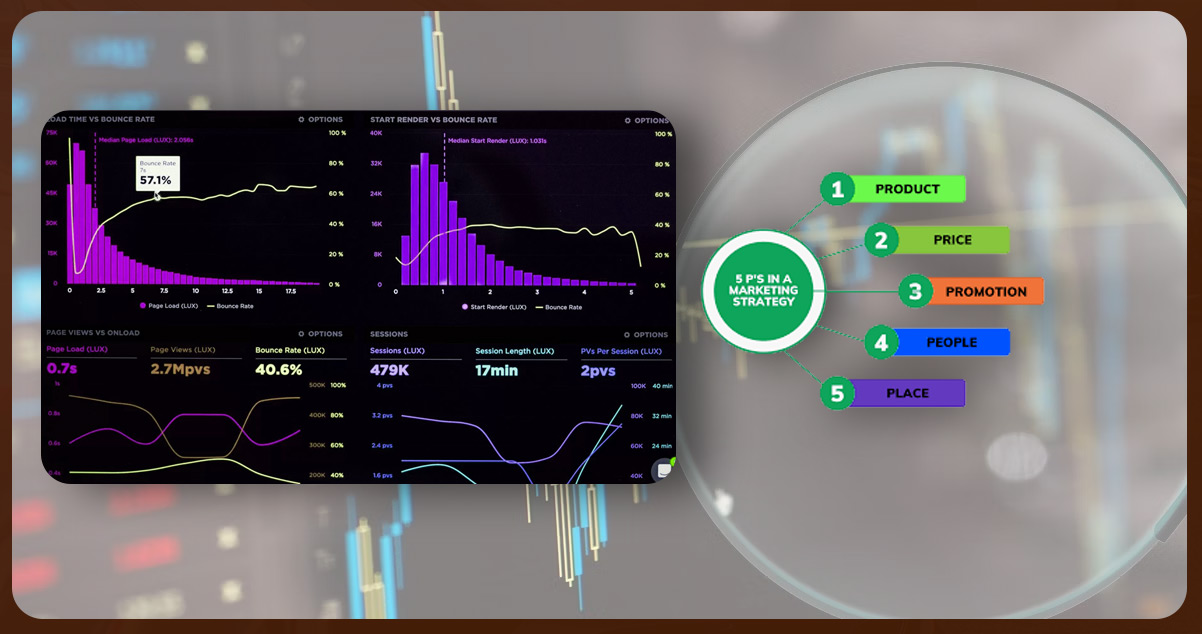

In the rapidly evolving automotive industry, leveraging data has become paramount for informed decision-making and maintaining a competitive edge. Automotive data scraping, a process that involves extracting relevant information from various online sources, has emerged as a powerful tool for enthusiasts, businesses, and researchers. This method allows stakeholders to tap into a wealth of data, including vehicle specifications, market trends, pricing dynamics, and consumer preferences. By harnessing the capabilities of web scraping or API integration, car data scraping enables a comprehensive understanding of the market landscape, facilitating precise market analysis, competitor research, and strategic planning. As technology continues to reshape the automotive sector, the insights derived from scraping data play a pivotal role in shaping the industry's future, offering a data-driven approach to address challenges and capitalize on emerging opportunities.


CarGurus is a prominent online automotive marketplace offering enthusiasts, dealers, and businesses a wealth of invaluable data. Delving into the intricacies of extracting data from CarGurus opens up a gateway to many insights, unraveling market trends, pricing strategies, and consumer preferences. This comprehensive guide seeks to unravel the intricacies of the data extraction process from CarGurus, shedding light on its potential applications and ethical considerations.
As a treasure trove of information, CarGurus data extraction facilitates a deep dive into the automotive market landscape. The data extraction involves utilizing various tools, such as web scraping or API integration, to gather essential information. It can encompass car specifications, pricing trends, seller ratings, and geographic variations. Scraping CarGurus data holds significant promise for diverse applications, including robust market analysis, strategic pricing adjustments, and a nuanced understanding of consumer behavior.
However, the journey of extracting data from CarGurus comes with ethical considerations. Respecting the platform's terms of service, prioritizing user privacy, and ensuring responsible data usage is imperative to maintain integrity in the extraction process. This guide aims to navigate users through the multifaceted realm of CarGurus data extraction, emphasizing ethical practices to harness the full potential of this automotive treasure trove. Hence, scrape CarGurus automotive data to unveil insights into market trends, pricing, and consumer preferences. Businesses can harness valuable information for strategic decision-making and competitive advantage in the automotive industry by employing web scraping or API integration.

Identify Target Data: Clearly define the specific types of data you intend to scrape from CarGurus, such as vehicle specifications, pricing details, and seller information.
Choose Scraping Tools: Select the appropriate car data scraper based on your preferences and project requirements. Popular options include BeautifulSoup and Scrapy for web scraping or utilizing CarGurus' API for more structured data retrieval.
Understand Website Structure: Analyze the HTML structure of CarGurus to understand the website's layout and organization of data. This step is crucial for identifying the HTML elements containing the data you wish to extract.
Inspect and Test: Utilize browser developer tools to inspect the HTML elements relevant to your target data. Develop and test your scraping code on a small subset of data to ensure accuracy and reliability.
Handle Anti-Scraping Measures: Be prepared to overcome standard anti-scraping measures implemented by websites, such as IP blocking, CAPTCHAs, and rate limiting. Implement solutions like proxy rotation and CAPTCHA-solving services to mitigate these challenges.
Write Scraping Code: Develop Python scripts using the chosen scraping libraries (e.g., BeautifulSoup, Scrapy) to initiate the scraping process. Construct code logic to navigate the website and extract the identified data points.
Implement Crawling Logic: If the data spans multiple pages or categories on CarGurus, implement crawling logic in your code to systematically navigate the website, ensuring comprehensive data extraction.
Data Storage: Decide on a suitable method for storing the scraped data. Options include
Ethical Considerations: Adhere strictly to CarGurus' terms of service and ethical guidelines during the scraping process. Avoid excessive requests that may strain the website's servers and prioritize responsible data extraction practices.
Monitor and Maintain: Regularly monitor your scraping activities using cargurus app data collection service to ensure compliance with CarGurus policies. Stay vigilant for any changes in the website structure that may require adjustments to your scraping code, and update your code accordingly to maintain the effectiveness of your data extraction efforts.

Conclusion: CarGurus data extraction proves to be an invaluable asset for businesses navigating the dynamic automotive landscape. The insights derived from market analysis, competitor research, and consumer behavior provide a strategic advantage, guiding pricing decisions, marketing efforts, and inventory management. This wealth of information enhances operational efficiency and contributes to informed, data-driven decision-making. Businesses that ethically and responsibly harness the power of CarGurus data can quickly adapt to market shifts, stay competitive, and foster long-term success in an industry where staying ahead of trends is paramount.
Don't hesitate to contact iWeb Data Scraping for a wealth of information! Whether you need web scraping service or mobile app data scraping, our dedicated team is at your service. Contact us today to delve into your specific requirements. Let us show you how our personalized data scraping solutions can deliver efficiency and reliability tailored precisely to your unique needs.